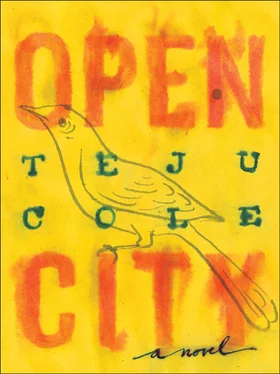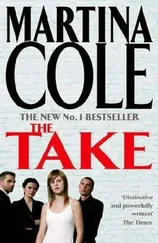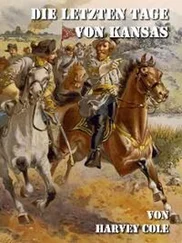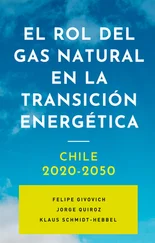Our food arrived. So, I guess English is only your second language, she said. What’s the first? For a second, I thought I might tell her that German, not English, was my second language, the private language between my mother and myself until I was five, the language I later totally forgot. Though, even now, to hear a child call out in a department store Mutter, wo bist du? still cut me to the quick; it must have been the kind of thing I said myself, once upon a time. English only came later, at school. But I didn’t want to get into the intricacies of the story, so I told her that Yoruba was my first language. It’s the second biggest of Nigeria’s native languages, I said. I spoke only Yoruba until I began primary school.
Are you still fluent in it? Yes, I said, I can get by, though by now my English is much stronger. But I want to ask you something, I said. You’ve been away for a long time, so you’re not a typical Belgian in any sense, but I wonder what you make of something a friend of mine said recently. He described Belgium as a difficult place for an Arab to be. My friend’s specific trouble is about being here and maintaining his uniqueness, his difference. Do you think that’s true? I don’t know if you remember, but on the plane you described Belgium as color-blind. But that doesn’t seem to have been the experience of Farouq — that’s my friend’s name — in the seven years that he has been living here. I think he even had his thesis rejected at the university, presumably because he wrote on a subject that the committee was uncomfortable with.
She had not touched her waterzooi . She continued chewing bread and spoke, in response to my question, dispassionately. Look, I know this type, she said, these young men who go around as if the world is an offense to them. It is dangerous. For people to feel that they alone have suffered, it is very dangerous. Having such a degree of resentment is a recipe for trouble. Our society has made itself open for such people, but when they come in, all you hear is complaints. Why would you want to move somewhere only to prove how different you are? And why would a society like that want to welcome you? But if you live as long as I do, you will see that there is an endless variety of difficulties in the world. It’s difficult for everybody. I nodded. But it would have been different, I said, if only you’d heard him tell it. He’s not a complainer, and I don’t think he’s full of resentment, not really. I think the hurt is genuine. Well, I’m sure it is, she said, but if you’re too loyal to your own suffering, you forget that others suffer, too. There’s a reason, she said, I had to leave Belgium and try to make my life in another country. I don’t complain and, to be honest, I really have little patience for people who do. You’re not a complainer, are you?
I ate, and my thoughts wandered over to her son, the one who had died. I wanted to hear her talk about him, and about the foundation that had been set up in his name, but I didn’t dare ask. She finally put a spoon into the creamy dish in front of her. The restaurant was almost empty; it was an unusual time of day to be eating, late for lunch, and a few hours before dinner. So, she said, how long will you remain here? I leave tomorrow morning, I said. She said she would stay a few weeks yet, that she was planning to buy a little sports car, an antique. Something for her use as she spent more and more time in Belgium; and then she spoke about jazz again. Our afternoon passed easily. I hoped she wouldn’t attempt to pay for the meal, and she didn’t. She said, You must call me if you ever come to Philadelphia. We have a house near the woods, in the suburbs, which is wonderful in the summer, and even better in the fall. Again, as she spoke, I felt the sense of well-being surge through me, a feeling that, even then, I couldn’t quite match up with her dismissal of Farouq’s story. And be sure to get Cannonball’s Somethin’ Else , she said. That’s the great one of all his albums, a true classic. I promised I would.
Walking from Place de la Chapelle, up through Sablon toward the museums, I wondered if I would run into the Czech, though I knew it was unlikely she was still in the city. The rain had subsided a little, but the wind picked up suddenly, turning my umbrella inside out. One of the ribs snapped, dislodging the top spring I’d been trying to repair earlier and leaving only half the umbrella functional. And though I was intent on getting out of the rain and getting home, I was arrested by a small monument set in a garden at the side of rue de la Régence, where that road met rue Bodenbroek. I had seen it before, in better weather, but had never stopped to look at it properly. It was a bronze bust of the poet Paul Claudel, set on a plinth on the side of the road like a shrine to Hermes.
Claudel had served as French ambassador to Belgium in the 1930s, and later went on to fame as a writer of Catholic plays, and as a right-winger. His support for the collaborators and Marshal Pétain during the war earned him much scorn, but W. H. Auden, himself a leftist agnostic, spoke kindly of him. Auden had written: “Time will pardon Paul Claudel, pardons him for writing well.” And as I stood there in the whipping wind and rain, I wondered if indeed it was that simple, if time was so free with memory, so generous with pardons, that writing well could come to stand in the place of an ethical life. But Claudel, I had to remind myself, was far from being the only problematic figure among the hundreds of statues and monuments around the city. It was a city of monuments, and greatness was set in stone and metal all over Brussels, obdurate replies to uncomfortable questions. It was time, in any case, to go home, to leave Claudel with his wet bronze head, to leave, in the museum next door, Auden’s Bruegel with its falling Icarus, and the unforgettable painting by an anonymous painter of a young girl with a dead sparrow.
I waited at the bus stop in front of the elaborate ironwork façade of the Musée des Instruments de Musique, and the bus, when it arrived, was nearly full. It was warm and damp inside, and everyone found it hard to breathe. We went through the city in that fogged-up interior, looking out with difficulty at the windy streets. I disembarked at Flagey. My umbrella was useless by then, and I threw it away. As I came onto rue Philippe, I found myself walking behind a woman pushing a pram. We were walking in single file between the buildings and some temporary barriers, flat panels of sturdy plastic anchored in concrete blocks that had been set up for a construction project. A sudden gust of wind lifted the panels, which were all tied to each other, and tipped them over, toward us. Immediately I sprang forward and broke their fall with my hands and my body. I staggered, but did not lose my balance. The woman, who was young and Mediterranean-looking, in too-tight jeans, was able to swerve her pram out of harm’s way. I caught no sight of the child, who was swaddled and shielded from the rain with a translucent plastic sheet. The young mother thanked me, again and again, gasping. She seemed stunned at how quickly it had all happened. I waved it off, proud.
The wind persisted in its howling fury. The little street we were walking on had, a hundred years ago, been a stream, not a street. It had been covered over by city planners, and waterside houses suddenly found themselves looking out on traffic. But the water still coursed underground, along the entire length of the street, and that water was returning now, in the form of rain, heavy waters above and flowing waters below.
Instinctively saving a baby, a little happiness; spending time with Rwandans, the ones who survived, a little sadness; the idea of our final anonymity, a little more sadness; sexual desire fulfilled without complication, a little more happiness: and it went on like that, as thought succeeded thought. How petty seemed to me the human condition, that we were subject to this constant struggle to modulate the internal environment, this endless being tossed about like a cloud. Predictably, the mind noted that judgment, too, and assigned it its place: a little sadness. The water that had once flowed along the street we were walking on had run into an artificial pond in the middle of Flagey, a pond that had then been obliterated to create a traffic island, echoing the creation of land in the oldest myths, as a division between the waters.
Читать дальше












